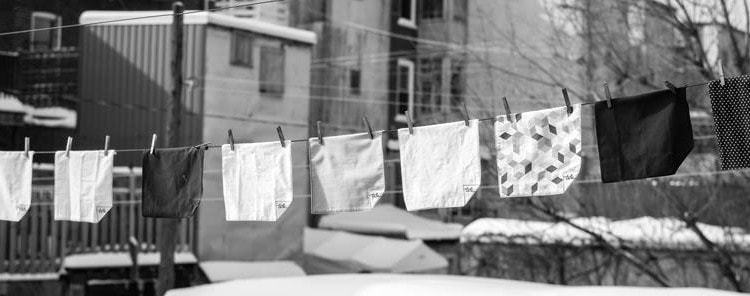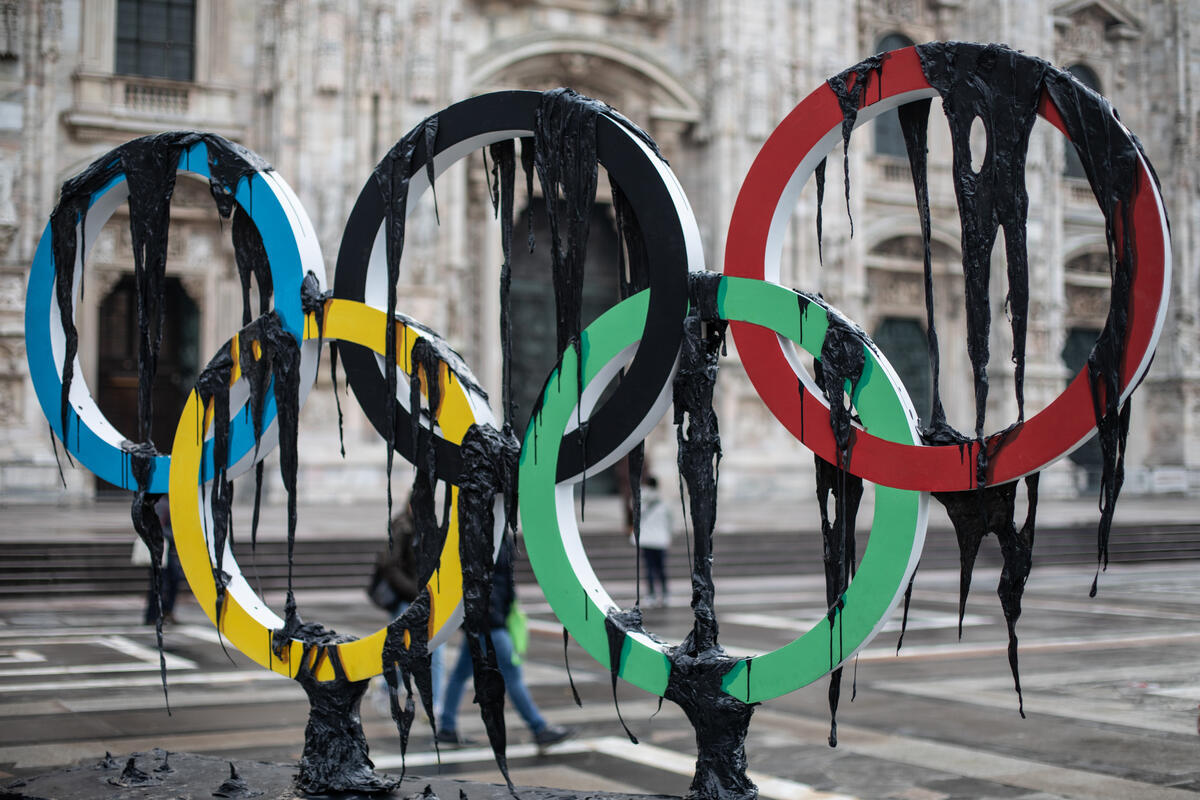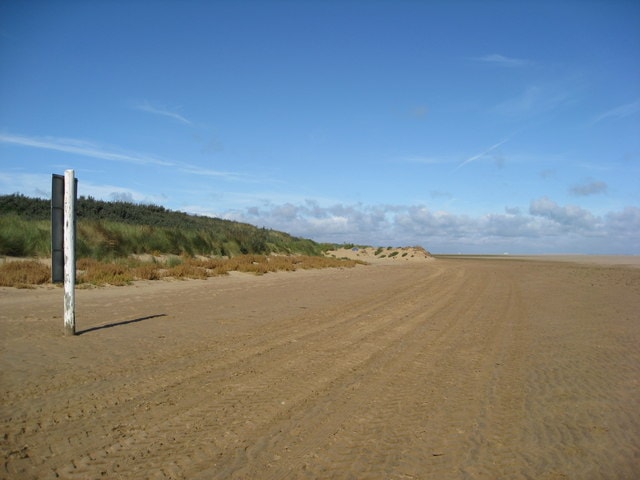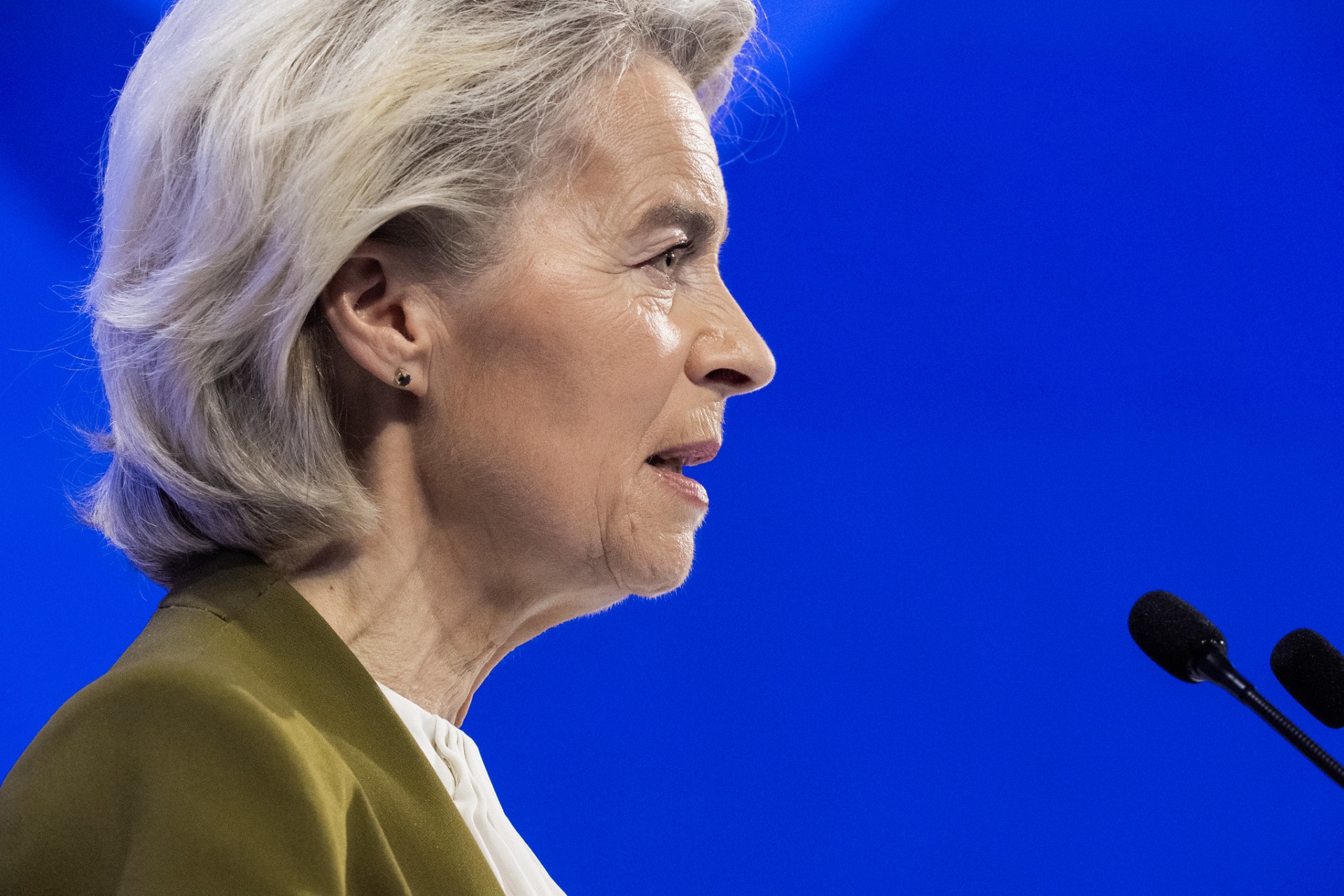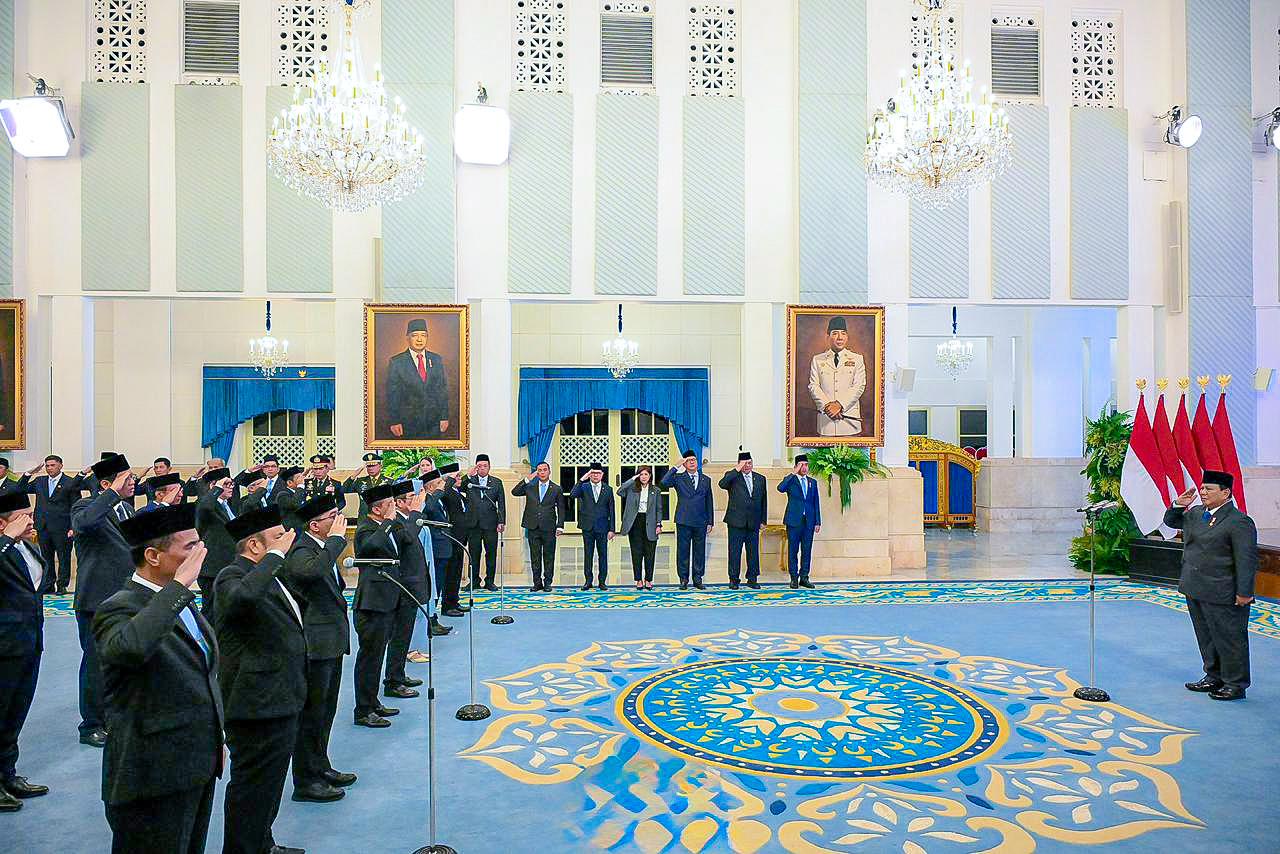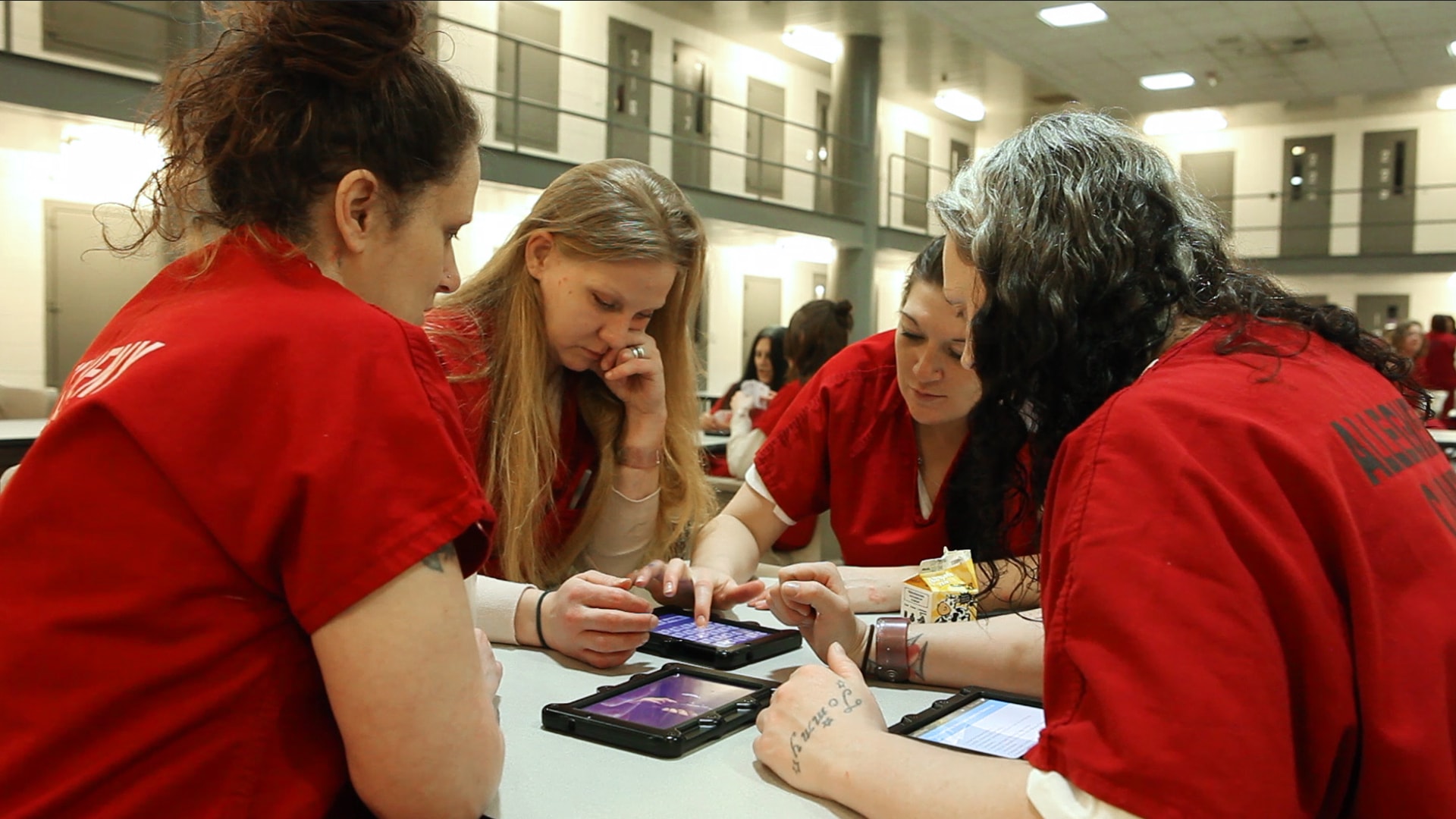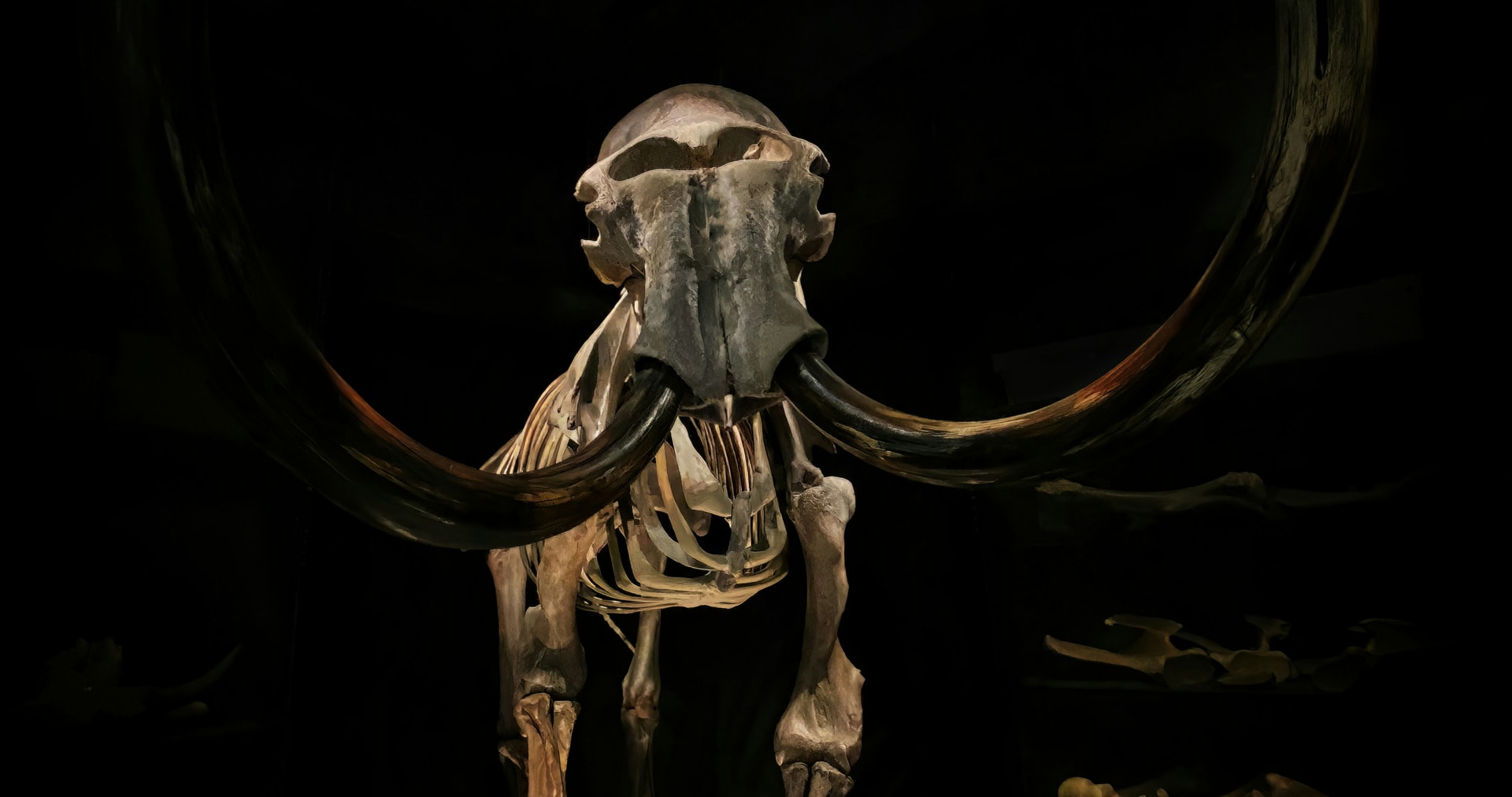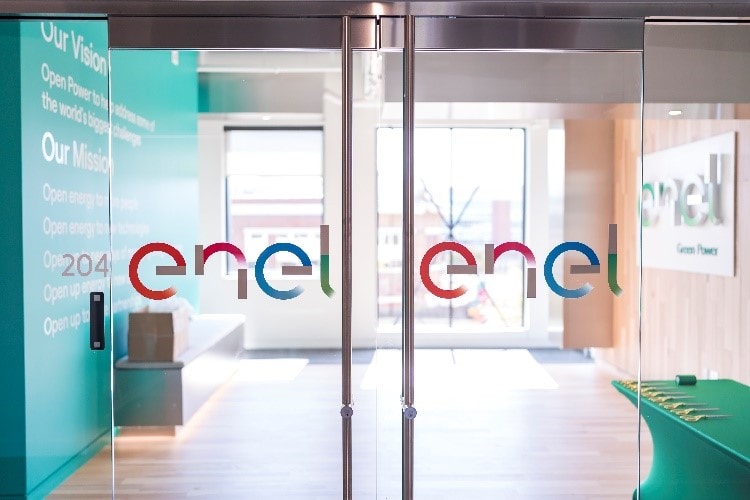Every year, over 3 billion kilos of paper tissues are used and disposed of. That’s the equivalent of 70 million trees.
The disposal nature of tissues makes them easy to disregard and waste unnecessarily, the shift we are now coming to terms with is how to make products last longer and be functional for longer. It is an easy concept to understand that a re-usable product trumps any other, in sustainable terms, from the same retail arena.
I spoke to Marion Poirer, CEO and co-founder of Tshu, a handkerchief company aiming to reduce waste amongst disposal tissues, by creating a product that fits in with fashion and lasts for a long time.
Q: How did you come up with the idea to found TSHU? How would you describe the mission of TSHU?
The story began in the summer of 2013, as Thomas and myself baby-mooned across France and Spain with our newborn son Olivier. Mixing business with pleasure, we planned to stop and see some long lost family members, of which “Tonton Robert”, Thomas’s 90-year-old uncle was one. Once we arrived at the destination, Robert was so touched by our visit, that he insisted we leave with something. So, we ended up hitting the road with a handful of embroidered handkerchiefs.
Back in Montreal, Thomas quickly adopted the hankies, finding childhood memories in their use. On my part, I curiously allowed myself to blow my nose in cotton, finding the new habit agreeable but strange. At first, I hid this little pleasure… Until suddenly it hit us: using handkerchiefs was not only fabulous, it was awesome for our planet! So, martini time turned into animated brainstorming sessions. What if handkerchiefs were to be given a new image? What if people were proud to blow their noses in public? What if the hanky could become a way for people to flaunt their green actions? So that pretty much sums up how TSHU was born.
As per TSHU’s mission, well essentially, we want to bring the hanky back in style. We believe that using handkerchief can help save precious resources and can be a vector of change. And, to reinforce TSHU user’s actions, we plant a tree for every adopted handkerchief.
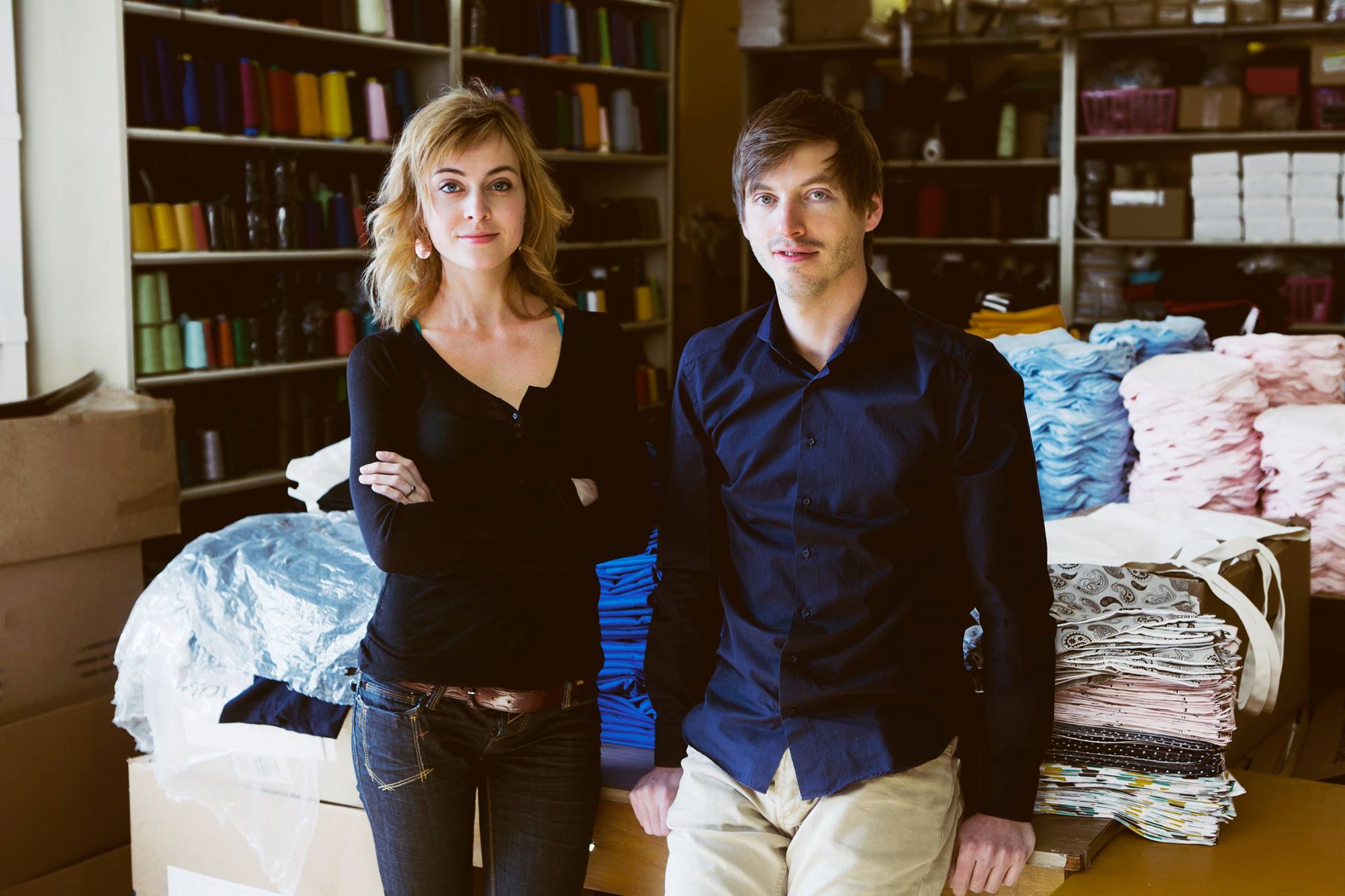
In the photo: Marion Poirer and Thomas Geissman, co-founders of Tshu Credit: Tshu
Q: Why sustainability and what does sustainability mean for you? How would you measure your industry and global impact?
The very essence of the handkerchief promotes healthier consumption and waste reduction. Not only are hankies a way to reduce (or eliminate!) our consumption of paper tissues, they are a safe and healthy alternative to them. In fact, many people who suffer from asthma or allergies are better off using cotton hankies.
What’s more, being in business has no meaning for us if it doesn’t mean creating good, durable, quality products that we can stand behind. And to be great in our minds, the whole process from thinking to producing has to be sustainable. Hence, we carefully select our partners for their skill, dedication and mostly—working conditions. We like to brag that all our hankies are sown with a smile.
As per measuring our impact, TSHU is still a small, family-sized business. We keep our eyes on the prize but mostly, we make every action count. Every adopted cotton handkerchief means fewer hankies out there in the world—and more trees planted. We are thankful for our customer’s trust and continued loyalty.
Q: How does TSHU stick to its values to do good while staying competitive? What unique business model do you use? What are the major challenges for sustainability in the consumer retail industry and how do you work to get over the challenges?
Sticking to our values is not a hard one for us! TSHU was always a way for us to create a business that corresponded perfectly to our idea of a business based on our ideals. It was a safe place where Thomas and I could make decisions based on convictions, not profit. So, I can’t say that we offer the cheapest handkerchiefs, but we certainly carry quality, durable, lovingly made ones. We don’t make much money, but we create happiness around us and we get a lot back from doing good.
Our business model is purely online—at the start, we tried the retail scene and realized that we really wanted to have a say on how our products were presented, spoken about, and cared for. What better way than to do it ourselves? None… So here we are.
As per sustainability challenges, there are many… We are confronted with the desire to reach perfection and one step at a time, we think we will! For instance, this year, we are slowly migrating all our best selling handkerchiefs to 100% certified organic fabric. We are also looking into diversifying our printing methods and looking into natural pigments. There are always ways to innovate and we hope to be able to better our hankies for many years to come.
I’d say the biggest challenge is creating ethical, quality products that will retail at a reasonable cost. I sometimes shop around on the web to see all the great creations made by artisans and, despite the quality of the work, pricing is often way too low to allow for profitable, full-time businesses, hence undervaluing the price of mass production. For our world to be more sustainable, people must understand the real value of things! That, I would say, is the biggest challenge of them all.
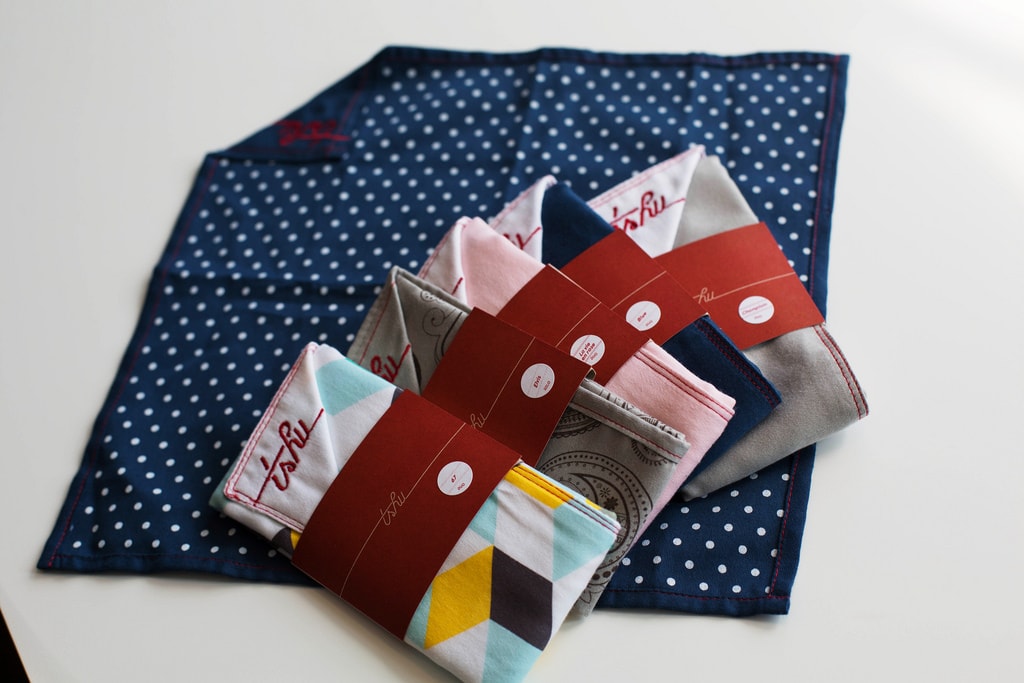
In the photo: Tshu handkerchief products Credit: Tshu
Q: Where do you see the direction of the company heading? What are some/will be some major milestones down the road?
Good question! At first, I had the desire to bring TSHU’s offer to include many more products that would promote waste reduction, but now I’m thinking I would much rather focus on one single product and make it the best in the world. We recently moved to Europe and our biggest challenge in months/years to come will be finding partners that fit with our vision and values and finding a way to better our hankies and expand our line of handkerchiefs and handkerchief holders. Short term, we are very excited to announce that we will be launching a new line made from cloth scraps handed down by talented designers Bleu Tango in Paris. Indeed, we’ll be releasing limited editions of handkerchiefs made from lovely, unique prints left over from previous collections.
Q: What message does TSHU have for other companies looking focus in similar pursuits?
Stay focused! There are a million opportunities out there—some good, some simply not in line with your values and vision. Quick money and volume have no meaning if your heart’s not in it… Being an entrepreneur is hard—so make it worth your while! Don’t compromise if you feel like the price is too high. You’ll be the winner, in the end.
Related article: ZERO WASTE LIFESTYLE: INTERVIEW WITH BEA JOHNSON by ANNA DURBANOVA
Q: What are your views on where the subject of sustainability is heading in general? What are some ways the average citizen can contribute towards sustainability?
That is a subject that I am personally quite passionate about! I’ve recently launched a blog: Chaqueactioncompte.com and an online shop: Zerodechetshop.com, to promote better consumption and waste reduction. The way I see it, every action counts and many people perceive eco-friendly lifestyles as extremist, overwhelming and judgmental. In order for more people to get involved, we have to open up and communicate that change doesn’t happen overnight! Changes happens progressively, with setbacks, with trial and error. What we need to cultivate is the desire to make a difference. The rest will follow!
Editors note: The opinions expressed here by Impakter.com columnists are their own, not those of Impakter.com


